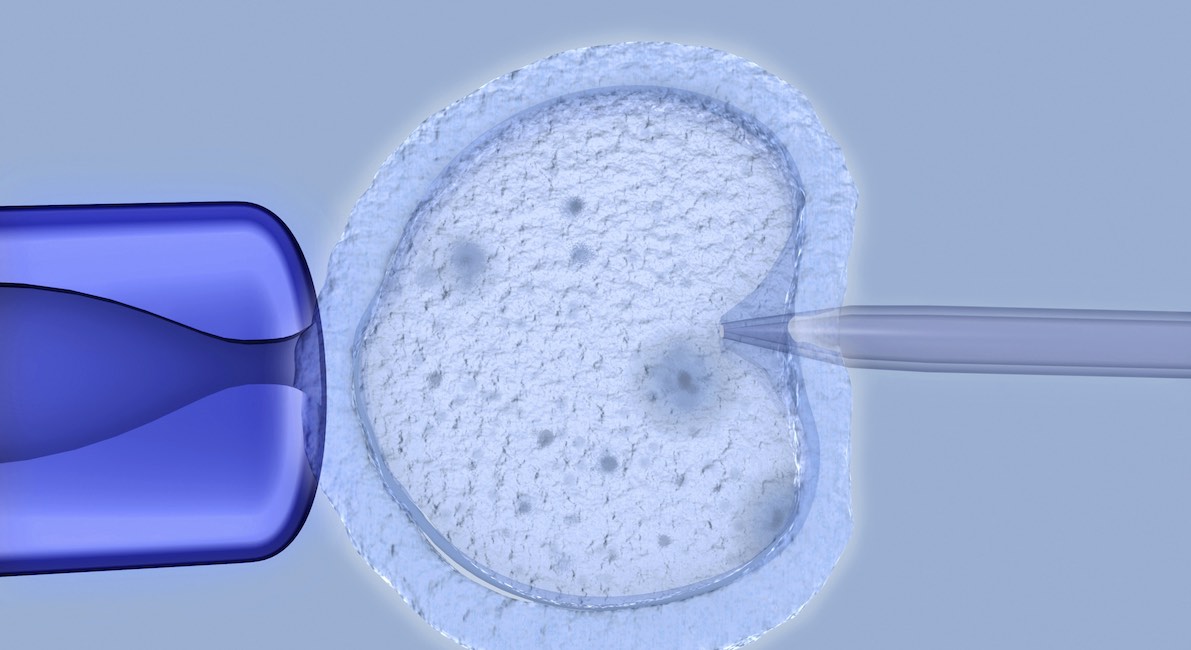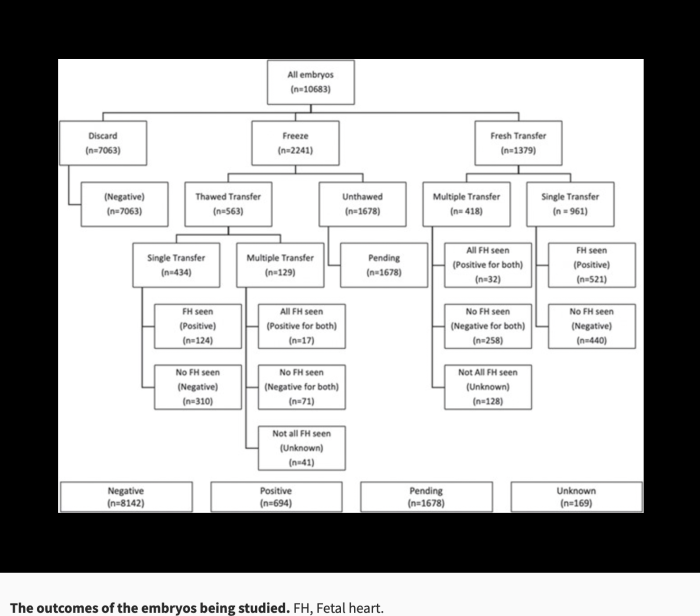At its core, in vitro fertilization (IVF) appears to be pro-life. Yet, the process includes the weeding out of human embryos — human beings — who have been deemed “unfit” by fertility industry standards. As a takeover battle ensues over Australian IVF business Virtus Health, the fact that the fertility industry is focused on “quality control” and financial profit can no longer be ignored.
According to a report by The Sydney Morning Herald, the fertility industry faced setbacks following the elective surgery lockdowns in the early days of the COVID-19 pandemic. But since then, there has been a significant uptick in patients seeking fertility treatments. In 2021, Virtus saw a 26% increase in new patients. Monash IVF, which boasts “robust quality assurance processes” saw a 40% jump. In the U.S., Carolina Conceptions has seen a 30% increase in patients over the last two years.
Discarding poor “quality” humans
UK-based CapVest Partners and BGH Capital are in a buyout war over Virtus Health, and at the center of the discussion is how far technology will take the fertility industry, including Virtus, in terms of live-birth success, the weeding out of children with health conditions, and financial profit.
“I think that the innovation that is likely to occur in IVF and assisted reproductive services is going to accelerate. Private funding does lend itself to investing in organisations like ours and accelerating that potential,” said Kate Munnings, chief executive officer and managing director of Virtus Health.
Currently, the IVF process often involves screening embryos through pre-implantation genetic testing (PGT) also known as pre-implantation genetic diagnosis (PGD). This allows fertility specialists to target children with genetic conditions such as Down syndrome and cystic fibrosis by testing the embryos for these health conditions before attempting to implant them. The embryos that receive a diagnosis face destruction or are sentenced to the lab for research and then destruction.
Embryos are also graded on their “quality,” which is incredibly dehumanizing. Those who don’t make the cut are discarded and many couples must agree to this ahead of time. Embryos labeled “aneuploid,” meaning he or she has an abnormal number of chromosomes, are often automatically thrown out because they are believed to have little to no chance of developing properly. However, new evidence is showing that these embryos can actually self-correct.
This discrimination is just the beginning. Virtus is now working with an intelligence tool called IVY Artificial Intelligence, which works using artificial intelligence (AI) to select embryos that the computer believes have the best chance of surviving long enough that the heart develops — usually about 21 days after fertilization. As explained by IVF.com.au:
Artificial intelligence performs a comprehensive assessment of the growth of the embryos over all five days and then relates this data to whether a fetal heart has developed or not. By completely objective analysis of the images, the artificial intelligence system has taught itself to identify the embryo with the greatest likelihood of developing as far as a fetal heart. The embryo with the highest score, and therefore the highest potential for leading to a viable fetus, can then be selected for transfer.
Virtus used IVY to review data obtained from 10,638 embryos using time-lapse videos from eight different Virtus Health IVF clinics in four different countries. Out of those 10,638 embryos, only 694 have been confirmed in positive pregnancies. More than 7,000 were discarded, and more than 1600 were still frozen at the time the study was published. Using AI, human embryos that may have been transferred in the past may be discarded because the computer determined them to be inadequate.
The company is also working to launch Precision Fertility, which will merge patient information with artificial intelligence tools in order to create better outcomes in IVF. This includes innovations in the use of egg and sperm donations to create the desired child. These practices have long be plagued by discriminatory practices.
The Repository for Germinal Choice existed to create “super-kids” using the sperm of high-achieving men. It was nicknamed the “Nobel Prize sperm bank” as the man behind the repository, Robert Klark Graham, took home the Ig Nobel in 1991 for the repository. The men who “donated” were all white and were required to be married heterosexuals along with other criteria. Women were only allowed to receive the sperm if they fit the same conditions. This would create what were expected to be white, highly intelligent babies. The bank ultimately failed, but its unethical practices still echo through the industry.
In 2015, the London Sperm Bank was under investigation for eugenic practices because it banned men with certain common conditions such as dyslexia and ADHD from selling their sperm. Egg donation advertisements paint a similar picture that these companies only want people of a certain race and appearance to contribute their eggs. Some companies have said they will only take women 5’9″ or taller, with an SAT score of 1500 or higher, and with athletic abilities. With the advancement of technology, these expectations will not disappear — they will only expand.
“[Technology] is going to be a game-changer for our sector — I think in five years, it’s going to be really transformational,” said Munnings.
According to a Harvard University study, 62% of children conceived through donor technologies, including surrogacy, believe it to be unethical. One woman told the pro-children’s rights organization Them Before Us, “Somehow, somewhere, my parents developed the idea that they deserved to have a baby, and it didn’t matter how much it cost, how many times it took, or how many died in the process. They deserved a child. And with an attitude like that, by the time I was born they thought they deserved to have the perfect child… as Dad defined a perfect child. And since they deserved a child, I was their property to be controlled, not a person or a gift to be treasured.”
Funding the future of IVF
Writing for Forbes in 2020, Claire Tomkins, Founder and CEO of Future Family made five fertility industry predictions. The first was: “Investor funding in the space will surge.”
She continued, “It’s becoming clear to investors that there’s a huge market for fertility services, especially as more women are having kids in their 30s and need to turn to alternative methods to conceive. [In 2019], venture capitalists and private equity firms poured over $624 million … into the fertility space, up from $200 million in 2009.”
All of that money works to “innovate” the IVF system. That is Tomkins’ second prediction. “As more money flows into the industry, we can expect to see a rise in entrepreneurs entering the space, fueling innovation at an increased pace,” she explained. “Not only will these new companies make existing fertility solutions available to people who previously didn’t have access to them, but they’ll also undoubtedly bring with them new solutions, such as software, diagnostic tools, products and services.”
There can be no mistake that innovations in “diagnostic tools” will be used to target even more children with disabilities or health conditions for destruction during the IVF process. But as recent reports on the accuracy of prenatal testing have shown, there is a lot of room for error. Regardless of whether or not the “diagnostic tools” are accurate, no child — even in the embryonic stage — should be discarded due to a diagnosis. Further innovation in the fertility industry diagnostic tools will inevitably lead to more destruction.
It isn’t just investors who will help fuel the destruction of human life at the embryonic stage. In Australia, Health Minister Greg Hunt announced Medicare will now offer rebates for five types of PGT — likely so that certain babies with certain medical conditions will not be born and therefore not cost the government money through the nation’s government-funded health care. Australia already has a history of trying to force immigrants with disabilities out of the country. And now the nation appears to be positioning itself to ensure citizens with certain health conditions are never born.
Fertility companies expect to see a large post-pandemic IVF baby boom in an industry that was already expected to reach $41.4 billion by 2026. Virtus stock has surged since the bidding war began. No matter which company wins out in the end, ultimately it is the children that lose out: the one million children left frozen indefinitely, the countless children discriminated against and destroyed, the children facing an identity crisis due to the circumstances of their conception, and the children born under the expectation of perfection.
“Like” Live Action News on Facebook for more pro-life news and commentary!








